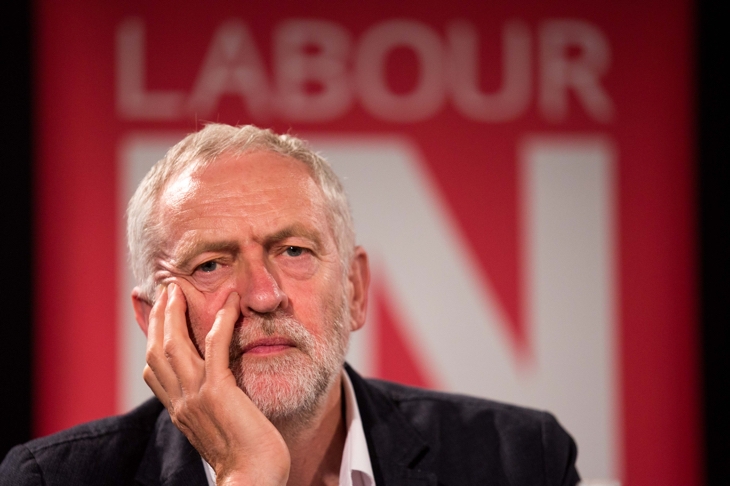Last night, Jeremy Corbyn confirmed many Labour moderates’ worst fears when he declared that he would not quit as leader — even if the party loses come June.
Now it’s not uncommon for politicians to say this on the election campaign trail and then act differently in the light of defeat — Gordon Brown did exactly this. But the issue is that no-one really believes Corbyn is bluffing.
It’s widely accepted in Labour circles that Corbyn won’t go without a fight following the election. Even in the face of disastrous election results, he is expected to try and cling on. The biggest factor in whether he can pull this off, will be the scale of the defeat. Given that party expectations are so low, many think that if May were to only win a majority of around 50 seats, Corbyn would be able to hang on fairly comfortably — notch that up to a Tory majority of 150 and it looks a lot harder.
Reports over the weekend suggest that the Leader’s Office are looking at it another way. Rather than focus on seats, they are concerned about the vote share. If Corbyn is able to match (or come close) to Ed Miliband’s vote of 30.4pc, his supporters will argue that he should keep his job.
There’s also reason to believe a leadership challenge could fail. For one, a lot of Corbyn’s supporters don’t put success at the polls as the prime marker of a good leader. Instead they argue that it’s more important to have a leader with integrity and real socialist values — or as Ted Knight once put it: ‘there can be no compromise with the electorate’. Still, a YouGov survey of Labour members in March found that 68pc thought Corbyn should not stay on as leader if Labour lost the election.
If this held true in a leadership contest, Corbyn could be ousted. But first the moderates would need to find a leader they can all rally around. As the PLP’s last plot to oust Corbyn with the lacklustre Owen Smith showed, this is easier said than done.







Comments